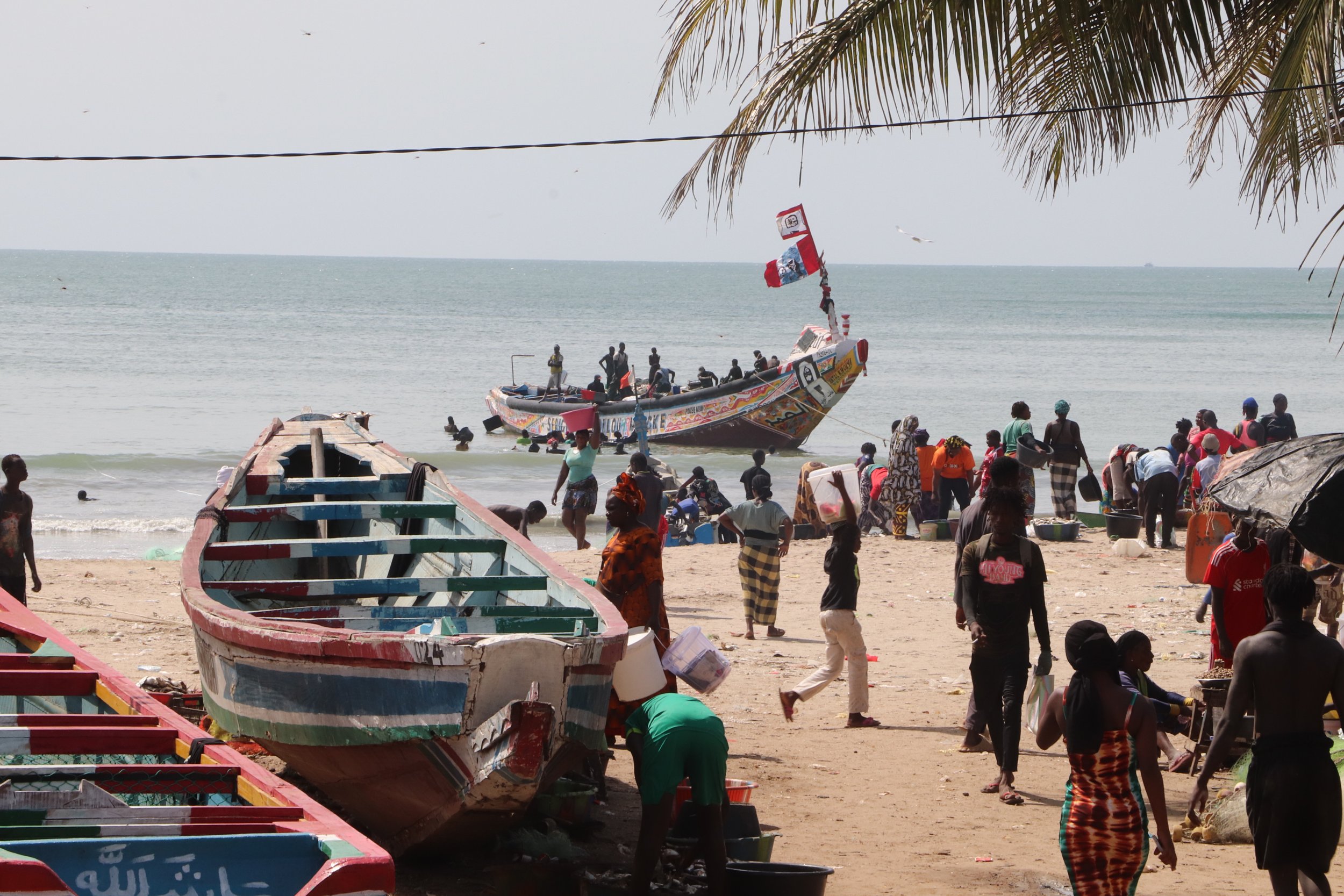A recent study in Nature Sustainability reviews 45 years of EU fishing access agreements with countries across Africa, the Pacific, and beyond. It shows how a small number of EU fleets have consistently captured the lion’s share of fishing opportunities and economic benefits, leading to lasting power asymmetries.
In Vigo, European and African stakeholders discuss the external dimension of the Common Fisheries Policy
"In fisheries and biodiversity management, women are a driving force"
It’s a long way to mutual understanding: European and African stakeholders find common ground on fishing joint ventures
The European Transport Federation (ETF) examines the new social clause in European fisheries agreements
Costas Kadis: “the EU Ocean Pact will be a model of sustainability, good governance, and coherence”
Liberian artisanal fishers oppose further unravelling of their fishing zone to let trawlers in
In April 2024, the Liberian National Fisheries and Aquaculture Authority (NaFAA) invited several fisheries stakeholders to validate a draft fisheries management plan for a multi-species deep-water shrimp fishery, which are very vulnerable and already over-exploited. LAFA deplores the absence of an appropriate stakeholder engagement during the development of the plan.
Publication of the list of vessels authorised to fish in Senegal: "The fight for transparency in fisheries is only beginning"
Senegalese civil society outlines the challenges of the new president's programme for small-scale fisheries
Women in fisheries at the forefront of African and European fisheries stakeholders’ dialogue
African countries to develop guidelines for the negotiation of fair and transparent fisheries agreements
Lövin: "In the CFP there are provisions for prioritizing giving fishing access to those that fish in the most responsible way"
Côte d'Ivoire: "Thanks to this refrigerated container, women processors and fishmongers in San Pedro are able to get by"
Two years after receiving funding from the EU-Côte d'Ivoire SFPA to buy a refrigerated container, we examine how the women of the Société Coopérative de Femmes Mareyeuses Grossistes et Détaillantes in the fishing port of San Pedro are faring. Beyond fish preservation, enabling women to become autonomous remains a challenge.
Senegalese small-scale fishers denounce the granting of new fishing licences
"The European Union must be credible and demonstrate that EU taxpayer’s money is well spent in support of sustainable fishing”
From 8 different African countries, representatives of coastal fishing communities participated to a seminar on the external dimension of the CFP hosted by the EU Long Distance Fisheries Advisory Council (LDAC) in Sweden and then travelled to Brussels where they exchanged with decision-makers from the Commission and the European Parliament.
To go far, you have to be together. The Ivorian women in artisanal fisheries can tell you how
This article by Andréa Durighello analyses, through the example of the Ivory Coast, the value of women's cooperatives and associations in African artisanal fisheries: in the professionalisation of the trade, in strengthening capacities, in representing women in professional organisations and, above all, in responding unitedly to the hazards of life.
China's capture of Ghana's fishing industry is threatening food security
Even though it is illegal for foreign vessels to fish in Ghana, over the last decade Chinese-owned vessels have proliferated. Journalist Kwabena Adu Koranteng investigates how business people well connected with power act as fronts for Chinese fishing industry. Ghana loses 50M€/year but more concerning is the fact that severe overfishing is impacting food security and nutrition in the country.
MEPs call on the Commission to use fisheries partnership agreements as a lever for regional management in West Africa
The European Parliament's Fisheries Committee has highlighted the impact of the fishmeal industry in Mauritania on the food security of West African populations and called on Mauritania, the EU and neighbouring countries to support and "initiate an international dialogue" for the creation of an RFMO for shared stocks.
FPAOI calls on countries and actors in the region to engage in the FiTI
Doors wide open for the San Pedro cold store
The 40-foot container is the first real impact perceived by fishmongers and processors from the sustainable fisheries partnership agreement between Côte d'Ivoire and the European Union, but the women face another challenge: access to credit and thus to the liquidity needed to build up working capital, which is necessary to buy fish.





















